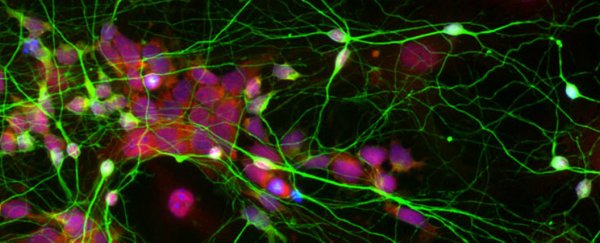In news that sounds like it's come straight out of science fiction, researchers in the US have discovered a drug that rapidly repairs damage to the colon, liver and bone marrow in mice, without any adverse side effects. It even saved the lives of mice that would have otherwise died as a result of a bone transplant.
The drug hasn't been tested on people just yet, but the team are now working on developing it for human use within the next three years, with the hope that it could drastically reduce recovery times and improve survival outcomes after surgery and injury.
"We are very excited," lead researcher Sanford Markowitz, an oncologist from Case Western Reserve University in the US, said in a press release. "We have developed a drug that acts like a vitamin for tissue stem cells, stimulating their ability to repair tissues more quickly."
Based on the initial results in animal models, which have been published in the journal Science, the team will first look at trialling the drugs in patients have ulcerative colitis, or are about to undergo bone marrow transplants or liver surgery – but in the future they hope to see whether it could more broadly speed up the repair of tissues around the body.
"The drug heals damage in multiple tissues, which suggests to us that it may have applications in treating many diseases," said Markowitz.
The drug, which goes by the un-catchy name of 'SW033291', works by enabling a natural molecule in the body known as prostaglandin E2, or PGE2. Scientists have long known that PGE2 helps the proliferation of adult stem cells - which play a crucial role in healing by differentiating into new cell types as required within their tissue.
But in his earlier research, Markowitz had shown that there's another gene product found in all humans known as 15-PGDH, which degrades and reduces the amount of PGE2. His team came up with the hypothesis that, if they could find a way to block 15-PGDH, they might be able to encourage tissue repair by keeping PGE2 levels high. So they set about finding a chemical that could do this – which is where SW033291 comes into the picture.
"The chemical, SW033291, acts in an incredibly potent way," said Markowitz. "It can inactivate 15-PGDH when added at one part in 10 billion into a reaction mixture, which means it has promise to work as a drug."
Further tests showed that not only did the drug inactivate 15-PGDH in the lab, it also worked when injected into animal models. In fact, mice given SW033291 recovered normal blood counts after bone marrow transplants six days faster than mice that weren't treated.
The drug also almost completely healed mice with ulcers in their colon, and helped mice that had had parts of their liver removed regrow the tissue nearly twice as fast as the control group.
Most impressively, the team tested out the drug on mice that had received lethal doses of radiation before being given a partial bone marrow transplant. Only the animals that were given SW033291 survived the procedure.
All of this occurred without any adverse side effects, even when extremely high doses of the drug were tested. The next step is to perform safety studies in larger animals. If all goes to plan, the team hope to test SW033291 in humans within three years.
"These are thrilling times for us as researchers," said Markowitz.
